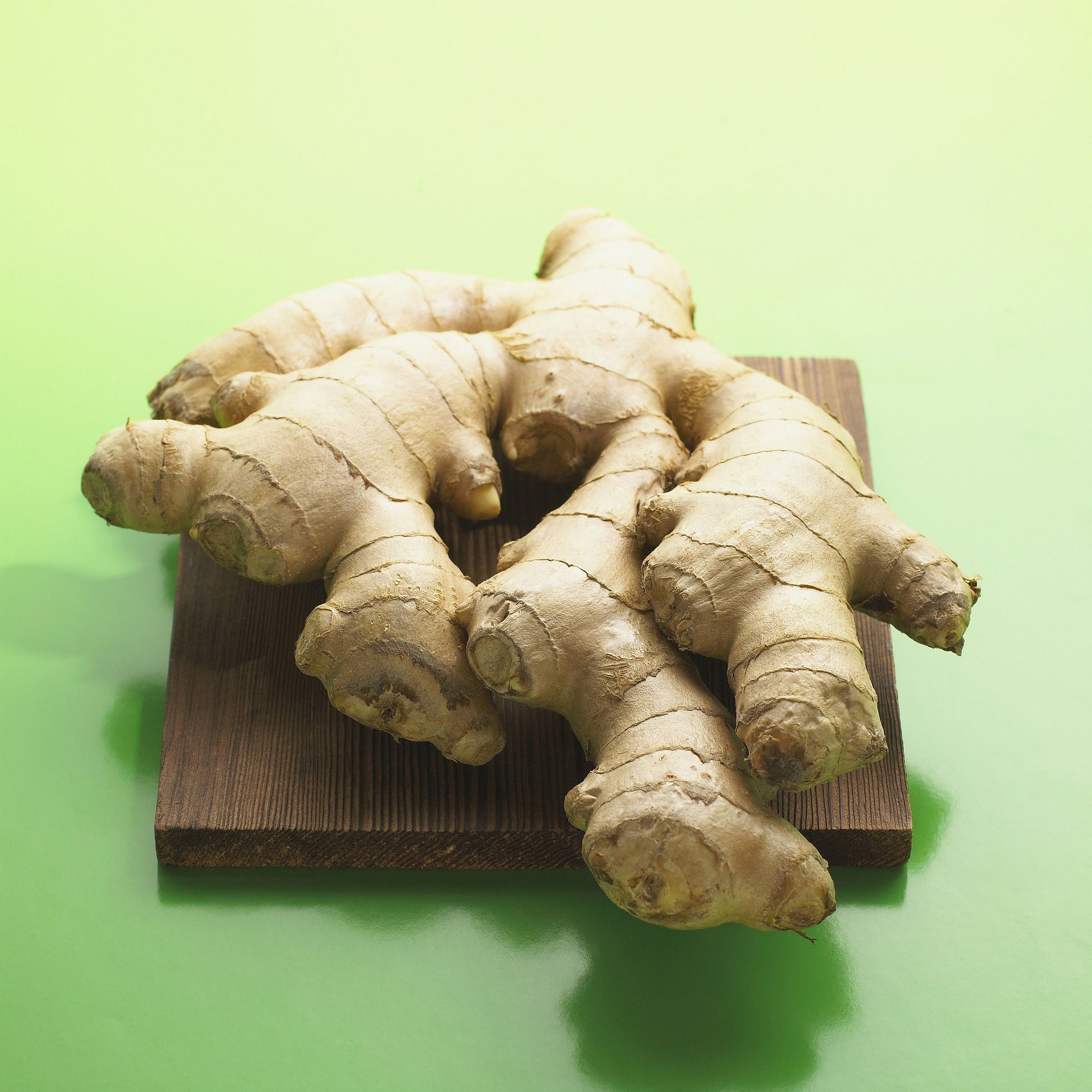Growing Demand for Thai Ginger in Pakistan
Ginger, a popular spice in the Indian subcontinent, has been a part of Pakistan's culinary culture for centuries. In recent years, the demand for fresh ginger in Pakistan has seen a sharp increase, with Thai ginger emerging as a popular choice among consumers.
This article explores the driving factors behind this growing demand, the challenges faced by Pakistani importers, and the opportunities for the ginger industry in Pakistan. We will also examine the impact of COVID-19 on the ginger trade and the future prospects for sustaining the growth in demand for Thai ginger in Pakistan.

1. Introduction to the Growing Demand for Thai Ginger in Pakistan
- Overview of the Ginger Industry in Pakistan
Ginger is a widely consumed spice in Pakistan and has been an essential ingredient in many traditional recipes for centuries. Ginger production in Pakistan is mainly concentrated in the Khyber Pakhtunkhwa province, where it is grown in small-scale gardens and fields.
- Emergence of Thai Ginger as a Popular Choice in Pakistan
Despite local production, the demand for ginger in Pakistan has been increasing rapidly over the past few years. One of the primary reasons for this is the emergence of Thai ginger as a popular choice among consumers. Thai ginger is known for its superior quality and unique taste, making it a preferred option for both households and restaurants.

2. Driving Factors Behind the Increase in Demand
- Health Benefits of Ginger Consumption
Ginger has numerous health benefits, including anti-inflammatory and immunity-boosting properties. As a result, the consumption of ginger is becoming increasingly popular among health-conscious consumers in Pakistan.
- Rising Demand for Ethnic Cuisine in Pakistan
The demand for ethnic cuisine in Pakistan has been increasing at an unprecedented rate. As a result, Thai ginger has emerged as an essential ingredient in many traditional Pakistani dishes, leading to a surge in demand.
- Cost Benefits of Importing Ginger from Thailand
The cost of importing ginger from Thailand is relatively lower than the cost of local production, making it a viable option for many Pakistani importers.
3. Overview of the Ginger Market in Thailand
- Major Ginger Producing Regions in Thailand
Thailand is one of the leading producers of ginger in the world, with Chiang Rai, Chiang Mai, and Lamphun being the major ginger-producing regions in the country.
- Export Statistics and Trends
According to the Department of Trade Negotiations, Thailand exported approximately 73,000 metric tons of ginger in 2020, with Pakistan being the largest importer of Thai ginger.

4. Challenges Faced by Pakistani Importers
- Quality Control Issues
One of the primary challenges faced by Pakistani importers is ensuring the quality of the imported ginger. There have been instances where imported ginger was of substandard quality, resulting in losses for importers.
- Payment and Logistics Challenges
Importing ginger from Thailand involves various payment and logistics challenges, including currency conversion, customs clearance, and transportation costs, which can make the process complicated and expensive.
- Regulatory and Legal Barriers
There are various regulatory and legal barriers associated with importing ginger from Thailand to Pakistan, including strict regulations and certifications required by both countries. These barriers can lead to delays and additional costs for importers.

5. Future Prospects and Opportunities for the Ginger Industry
The demand for fresh ginger in Pakistan is showing no signs of slowing down, indicating a bright future for the ginger industry in the country. There is significant potential for value addition and product diversification in the ginger market, which can lead to increased profits and improved market competitiveness. Ginger can be processed into various forms such as ginger powder, ginger oil, ginger paste, and ginger candy, to name a few. These products can be sold to different segments of the market, including the food and beverage, cosmetic, and pharmaceutical industries.
Another opportunity for growth in the ginger market is the increasing demand for organic and fair-trade ginger. Consumers are becoming more conscious of the environmental and social impacts of their consumption choices and are choosing products that are produced sustainably and ethically. This presents an opportunity for ginger producers to establish their presence in the organic and fair trade market, thus providing a premium price for their products.

6. Impact of COVID-19 on the Ginger Trade
The COVID-19 pandemic has had a significant impact on the ginger trade. The global supply chain has been disrupted, leading to price fluctuations and shortages of ginger from some countries. Many countries have imposed trade restrictions and border closures, which have slowed down the movement of goods across the border. Furthermore, changes in consumer behavior and demand patterns have affected the overall demand for ginger products.
However, the pandemic has also created opportunities for the ginger market. Ginger is known for its immune-boosting properties, and consumers are increasingly looking for natural ways to boost their immunity during the pandemic. This has led to an increase in demand for ginger-based products such as ginger tea and ginger supplements.

7. Conclusion: Addressing Barriers to Sustain the Growth of the Ginger Market in Pakistan
To sustain the growth of the ginger market in Pakistan, several barriers must be addressed. Firstly, there is a need for better quality control mechanisms and traceability systems in the ginger supply chain. This will ensure that the ginger produced meets the required quality standards and is free from harmful chemicals and contaminants. It will also improve transparency in the supply chain and provide assurance to consumers.
Secondly, strengthening trade networks and partnerships is crucial for sustaining the growth of the ginger market in Pakistan. The government can facilitate this by providing access to credit and financial support for small-scale farmers and traders. Collaboration between different actors in the ginger value chain, such as farmers, traders, processors, and exporters, can also create a more efficient and sustainable supply chain.
In conclusion, the ginger market in Pakistan has vast potential for growth and value addition. With the right strategies and interventions, the industry can provide increased incomes for farmers and traders and contribute to the overall economic development of the country. In conclusion, while Pakistani importers face several challenges, the growing demand for Thai ginger presents significant opportunities for the ginger industry in Pakistan.
With better quality control mechanisms, traceability systems, and strengthened trade networks, the growth of the ginger market can be sustained. The COVID-19 pandemic has brought in new challenges and opportunities, and it is essential to adapt and innovate to address them. As the demand for ethnic cuisine and healthy food options continues to rise, the ginger industry in Pakistan has the potential to thrive and contribute to the country's economy.

FAQs
Why is there a growing demand for Thai ginger in Pakistan?
The demand for Thai ginger in Pakistan is rising due to several factors, including its lower cost compared to domestic ginger, its consistent quality, and the health benefits associated with its consumption. Additionally, Thai ginger has a unique flavor profile that is preferred by many consumers.
What are the challenges faced by Pakistani importers of Thai ginger?
Pakistani importers of Thai ginger face several challenges, including quality control issues, payment and logistics challenges, and regulatory and legal barriers. Ensuring the quality of ginger imported from Thailand is a significant concern for importers, as any issues can lead to losses and reputational damage.
How has COVID-19 impacted the ginger trade between Thailand and Pakistan?
The COVID-19 pandemic has led to significant disruptions in the ginger trade between Thailand and Pakistan. The closure of borders and changes in consumer behavior have led to fluctuations in demand and supply. Additionally, logistical challenges and higher transportation costs have affected the pricing and availability of Thai ginger in Pakistan.
What are the future prospects for the ginger industry in Pakistan?
The ginger industry in Pakistan has significant potential for growth, given the rising demand for ethnic cuisine and healthy food options. There are opportunities for value addition and product diversification, as well as the development of organic and fair-trade ginger. However, to sustain growth, it is essential to address the challenges faced by importers and strengthen trade networks and partnerships.
